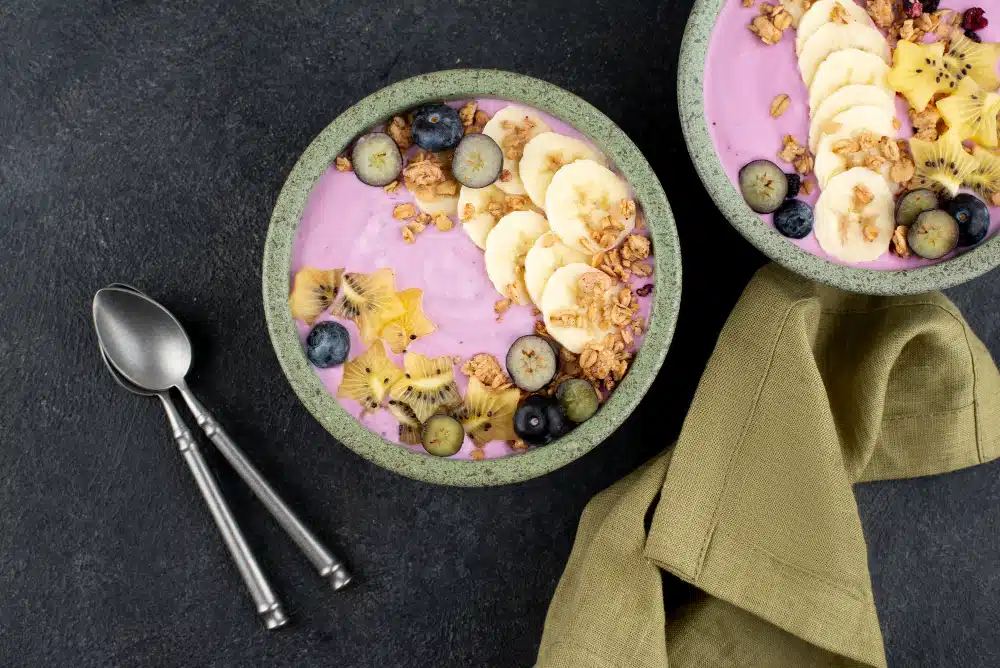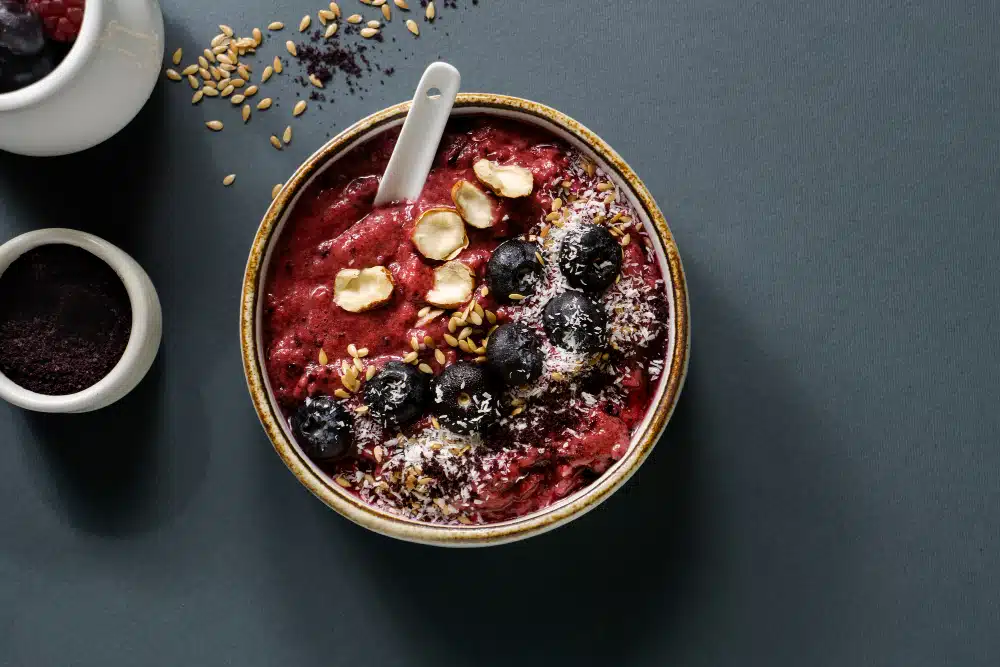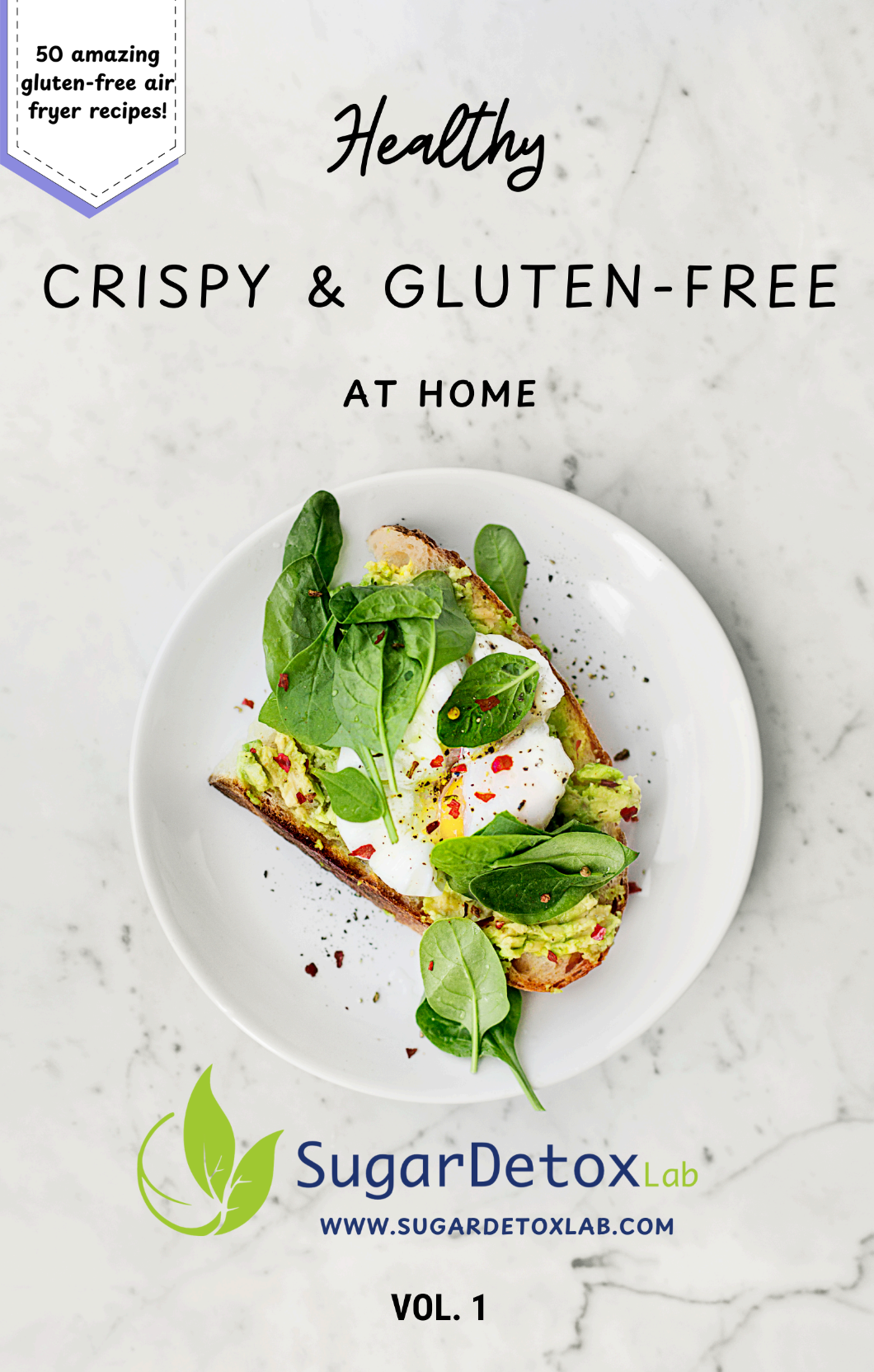Introduction
Are Acai Bowls Healthy and Delicious? It’s a question that has been buzzing around health-conscious communities, smoothie bars, and Instagram feeds. These vibrant, purple-hued bowls topped with fruits, granola, and nut butters are undeniably beautiful—and they promise a mix of nutrition and indulgence. But what’s the truth behind the hype? Can something that looks like dessert really be a wholesome breakfast or snack?
According to dietitians, the answer is: it depends. Acai bowls can be packed with antioxidants, fiber, and healthy fats—but depending on how they’re prepared, they can also be high in added sugars and calories. In this article, we’ll break down the nutritional benefits, potential drawbacks, and how to make acai bowls a smart, balanced choice for your diet.
What Are Acai Bowls?
Acai (pronounced ah-sigh-EE) is a berry native to the Amazon rainforest in Brazil. Because the fruit is highly perishable, it’s usually sold frozen as acai puree packets or acai powder.
An acai bowl typically includes:
- Base: Frozen acai blended with fruits like banana, blueberries, or mango.
- Toppings: Granola, nut butters, coconut flakes, chia seeds, and fresh fruit.
- Optional boosts: Protein powder, cacao nibs, or honey for added sweetness.
They are often marketed as “superfood bowls” due to acai’s antioxidant content.
The Nutritional Benefits of Acai Bowls
Rich in Antioxidants
Acai berries are loaded with anthocyanins, compounds that help fight oxidative stress and reduce inflammation.
Source of Fiber
When made with whole fruits, acai bowls can provide 7–15 grams of fiber per serving, supporting digestion and satiety.
Healthy Fats
Toppings like nut butter, chia seeds, and coconut add omega-3s and monounsaturated fats that support heart health.
Vitamins and Minerals
Acai bowls can contain vitamin A, vitamin C, calcium, and magnesium, depending on the ingredients used.
The Potential Downsides of Acai Bowls
While acai bowls offer several benefits, there are some things to watch out for:
- High Sugar Content
- Some store-bought or café acai bowls contain 40–60 grams of sugar, especially when sweetened with fruit juices or honey.
- Calorie Density
- Toppings like granola and nut butter, though healthy, can quickly add up to 600–800 calories per bowl.
- Lack of Protein
- Most acai bowls are low in protein, which means they may not keep you full for long.
How to Make Acai Bowls Healthier
If you love acai bowls but want to keep them balanced, here are dietitian-approved tips:
1. Control the Base
- Use unsweetened acai puree instead of pre-sweetened packs.
- Blend with low-sugar fruits like berries instead of high-sugar options like mango or pineapple.
2. Add Protein
- Mix in Greek yogurt, protein powder, or silken tofu to improve satiety.
3. Choose Toppings Wisely
- Go light on granola or choose a low-sugar version.
- Add nutrient-dense options like chia seeds, hemp hearts, or a spoonful of almond butter.
4. Watch Portion Sizes
- Use a small bowl or smoothie cup instead of a large one to prevent calorie overload.

Step-by-Step Guide: Building a Balanced Acai Bowl: Are Acai Bowls Healthy
Ingredients
- 1 packet unsweetened acai puree
- ½ cup frozen blueberries
- ½ banana (for creaminess)
- ½ cup unsweetened almond milk
- 1 scoop vanilla protein powder (optional)
Toppings (choose 3–4 max)
- 2 tablespoons low-sugar granola
- 1 teaspoon chia seeds
- 1 tablespoon almond butter
- Fresh sliced strawberries or kiwi
Instructions
- Blend acai, banana, blueberries, milk, and protein powder until thick and creamy.
- Pour into a small bowl.
- Add your selected toppings, keeping portions modest.
- Enjoy immediately!
Acai Bowls vs. Smoothies: Which Is Better?
Many people wonder whether acai bowls are healthier than smoothies. The answer: they’re very similar, but acai bowls usually contain more toppings and calories. Smoothies tend to be more portable and lower in added sugar, while bowls offer more texture and satiety if topped wisely.
Are Acai Bowls Good for Weight Loss?
Acai bowls can fit into a weight-loss plan if portion-controlled. Here’s how:
- Keep total calories under 400–500 per bowl.
- Focus on unsweetened acai and low-sugar fruits.
- Add protein for fullness.
- Limit high-calorie toppings like coconut flakes and nut butter.
Are Acai Bowls Healthy and Delicious? A Dietitian’s Verdict
So, are acai bowls healthy? Dietitians agree that they can be—as long as they’re balanced. When made with whole fruits, unsweetened acai, and smart toppings, they provide antioxidants, fiber, and healthy fats. But if loaded with sugar and oversized portions, they can tip into dessert territory.
The key is mindful customization. With the right ingredients, acai bowls can be a nutrient-rich way to start your day.
FAQ: Acai Bowls
1. Are acai bowls high in sugar?
Yes, some commercial acai bowls can have 40+ grams of sugar. Choosing unsweetened acai and limiting sweet toppings reduces sugar content significantly.
2. Can acai bowls be made keto-friendly?
Yes, use unsweetened acai powder, low-carb fruits (like blackberries), and high-fat toppings like coconut oil or chia seeds.
3. Are acai bowls good for breakfast?
Absolutely! With added protein and healthy fats, acai bowls make a refreshing and energizing breakfast.
4. Can kids eat acai bowls?
Yes, acai bowls are safe and nutritious for kids, especially when kept low in added sugar.
5. Do acai bowls help with digestion?
Yes, thanks to fiber from acai and other fruits, they support healthy digestion. Adding chia or flax seeds can enhance gut health.
6. Are store-bought acai bowls healthy?
It depends. Many café versions are oversized and sweetened. Homemade bowls usually offer better control over ingredients.
Conclusion
Are Acai Bowls Healthy and Delicious? Here’s what a dietitian says: they can be an antioxidant-rich, nutrient-packed meal—if made with the right ingredients. The trick is to use unsweetened acai, balance your toppings, and add protein for staying power. That way, you get the benefits of a superfood without the sugar overload.






